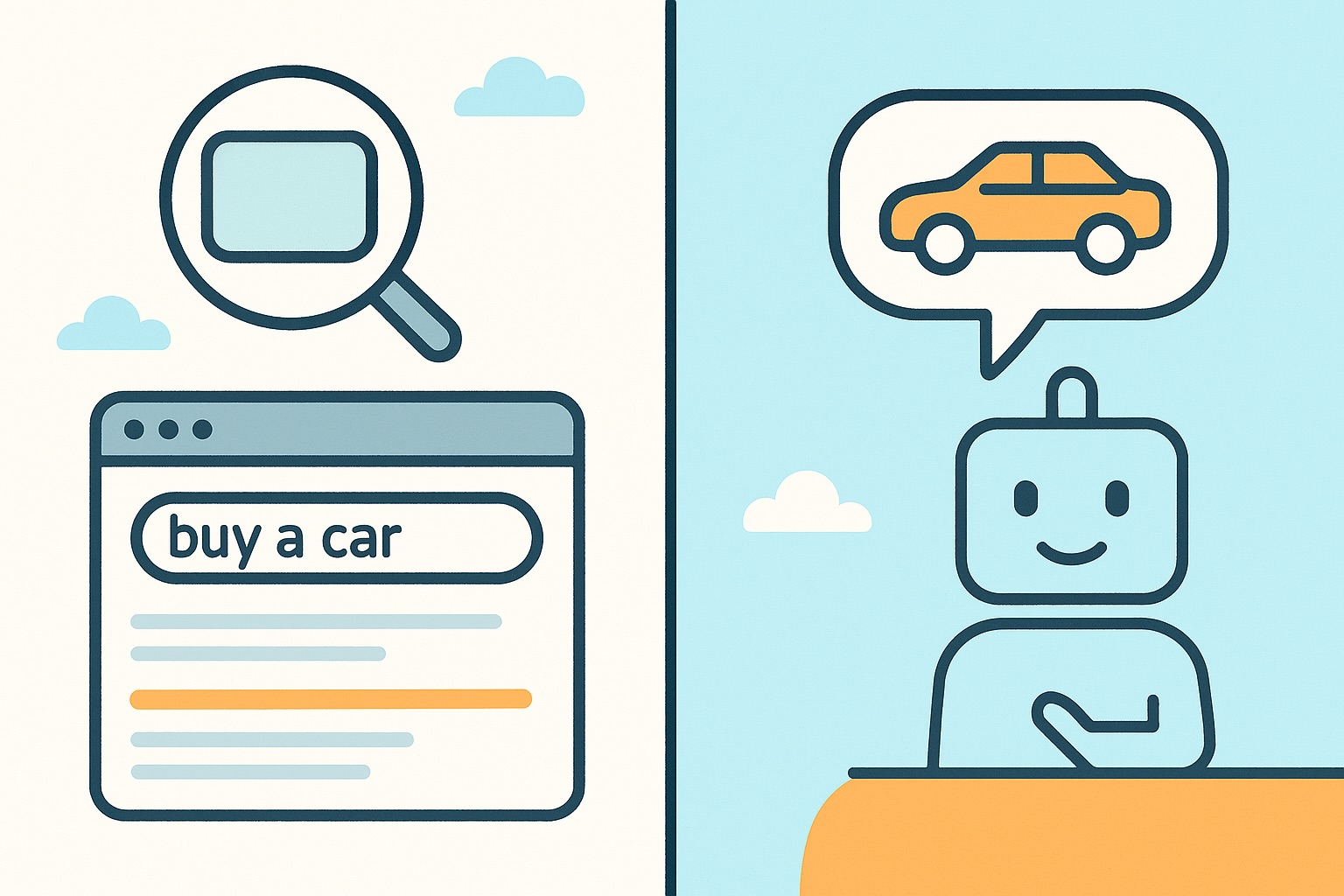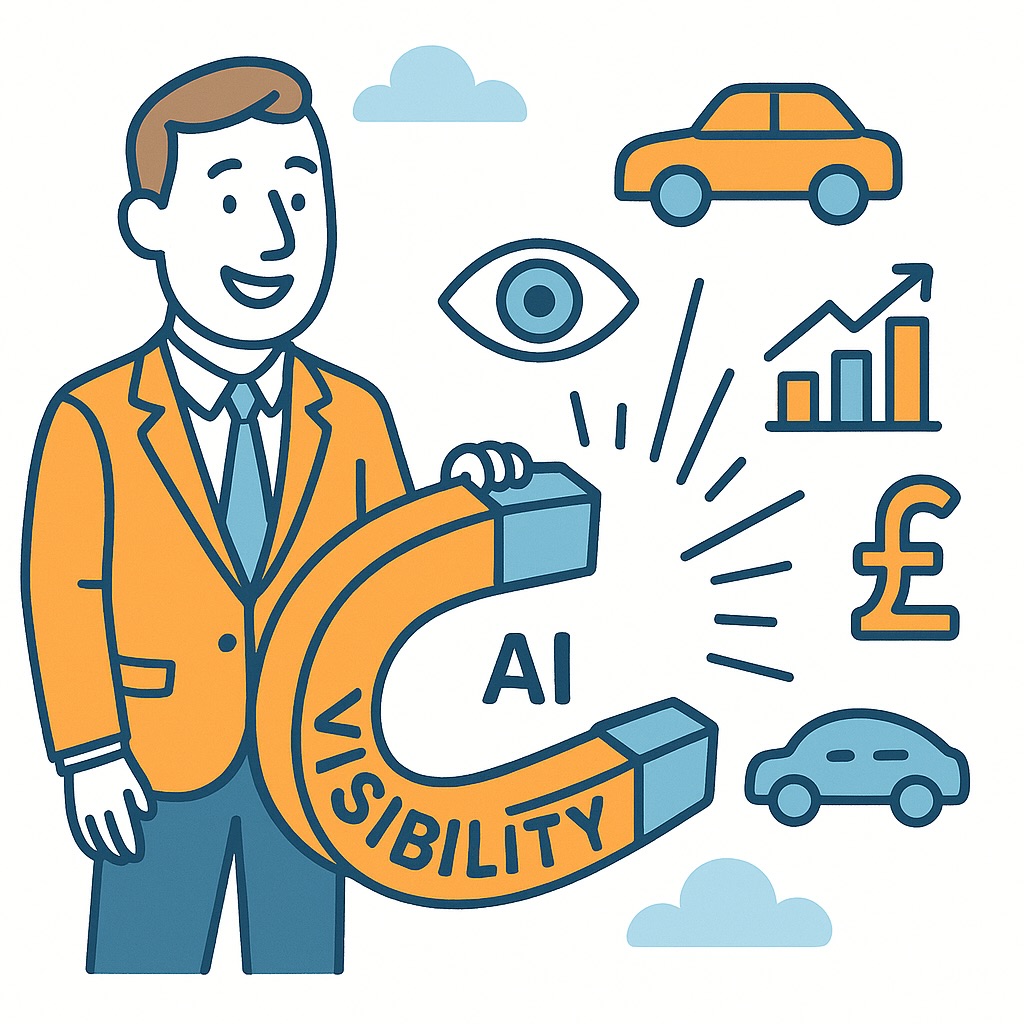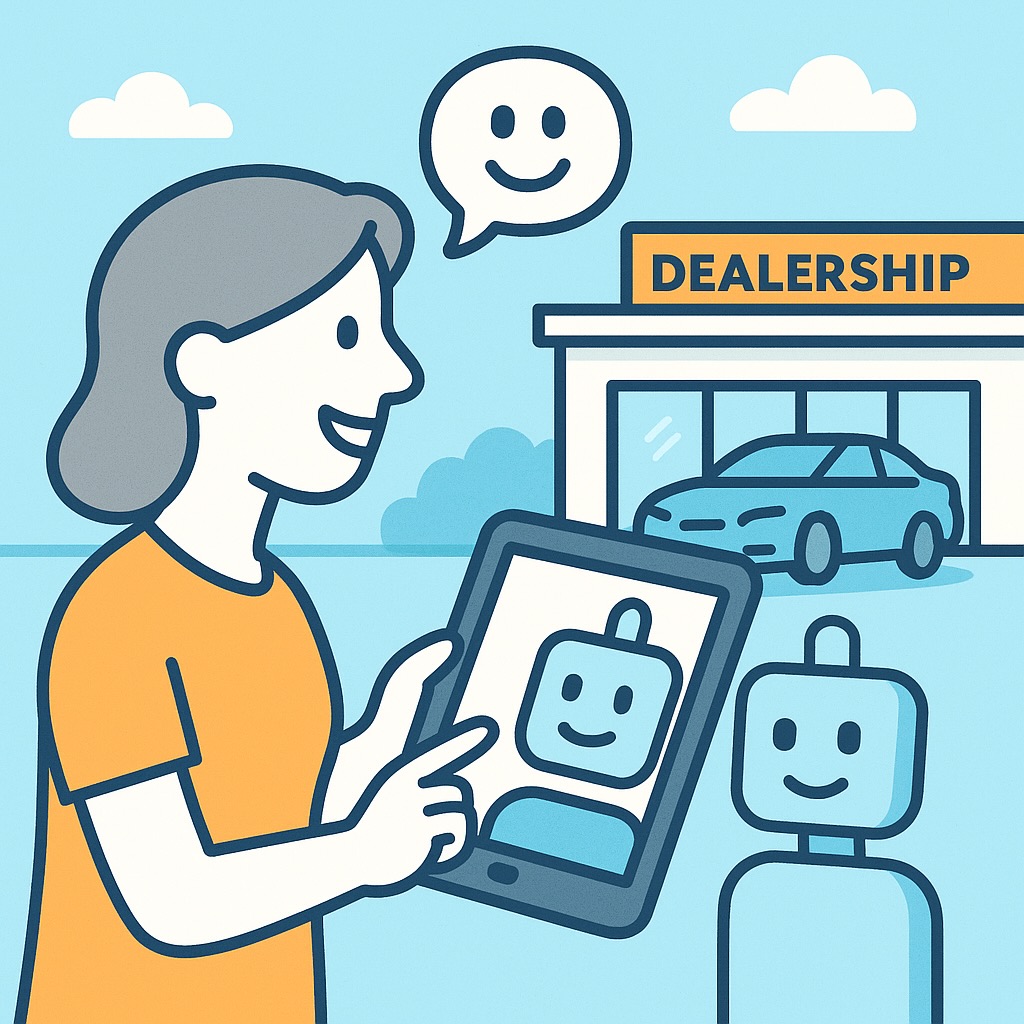Not long ago, the car buying journey was dominated by search engines, classified ads, and visits to multiple dealerships. Today, a quiet but powerful shift is underway — buyers are increasingly turning to AI assistants to guide their decisions.
From ChatGPT and Google Gemini to the built-in tools on major marketplaces, AI is no longer a novelty. It’s becoming the first point of contact for many buyers, shaping what models they consider, which dealerships they visit, and even how much they’re prepared to pay.
AI in the Buying Cycle
Research across automotive and retail shows AI is now active in multiple stages of the buying journey:
1. Early Research
Buyers ask AI nuanced, personal questions like:
“What’s the best family SUV under £15k within 25 miles?”
“Which EVs have the longest range for commuting?”
AI tools filter and shortlist based on the buyer’s needs (budget, geography, usage pattern, range anxiety, fuel type, ownership costs).
2. Evaluation
Assistants compare trims, ownership costs, reliability perceptions, real‑world running costs and user reviews — increasingly pulling in local availability and indicative pricing from structured or semi‑structured data sources.
3. Final Decision
AI presents “ready‑to‑buy” shortlists and can deep‑link buyers directly to vehicle listings. Some flows now help arrange test drives or explore finance options.
Why This Matters for Dealerships
Traditional CPC (cost‑per‑click) advertising has a structural inefficiency: you pay for every click whether intent is high or not. AI‑accelerated traffic changes that dynamic.
AI‑referred visitors are pre‑qualified. By the time a buyer lands on your site from an AI recommendation they’ve already had their key questions answered. They know:
- What they’re looking for
- Why it suits them
- How it fits their budget
This translates into:
- Higher intent – further down the funnel
- Lower acquisition waste – fewer irrelevant clicks
- Better conversion rates – shortened decision path
Trust and Transparency Still Matter
Buyers don’t blindly trust AI. Surveys show only ~13% fully accept AI shopping advice without human validation. That’s a competitive opening.
Dealers who surface accurate, structured and attributed information become the human trust layer that converts AI research into a real‑world sale.
Positioning for the AI Era
Some dealerships will adapt early — structuring inventory, services, locality signals and financing information so AI systems can confidently recommend them. Others will wait and slowly lose visibility inside the conversational discovery layer.
Just as SEO re‑shaped marketing in the 2000s, AI‑readiness + geo discoverability is emerging as the differentiation axis of the 2020s.
The Bottom Line
AI isn’t replacing the human element of car sales — it’s replacing the guesswork in how buyers find you.
The winners will be the dealerships that show up in AI answers with accurate, trustworthy, geo‑relevant inventory and are ready to greet a buyer who’s already half‑way sold.
Practical Next Steps for Dealers
- Audit inventory data quality (descriptions, trim specifics, mileage normalisation).
- Ensure locality / geo signals (service area, postcode relevance, radius) are explicit.
- Structure finance & ownership cost information where compliant.
- Maintain rapid update cadence so AI systems trust freshness.
- Activate an AI visibility layer (like Market4Cars) to accelerate coverage without internal engineering lift.
— Market4Cars Editorial Team



